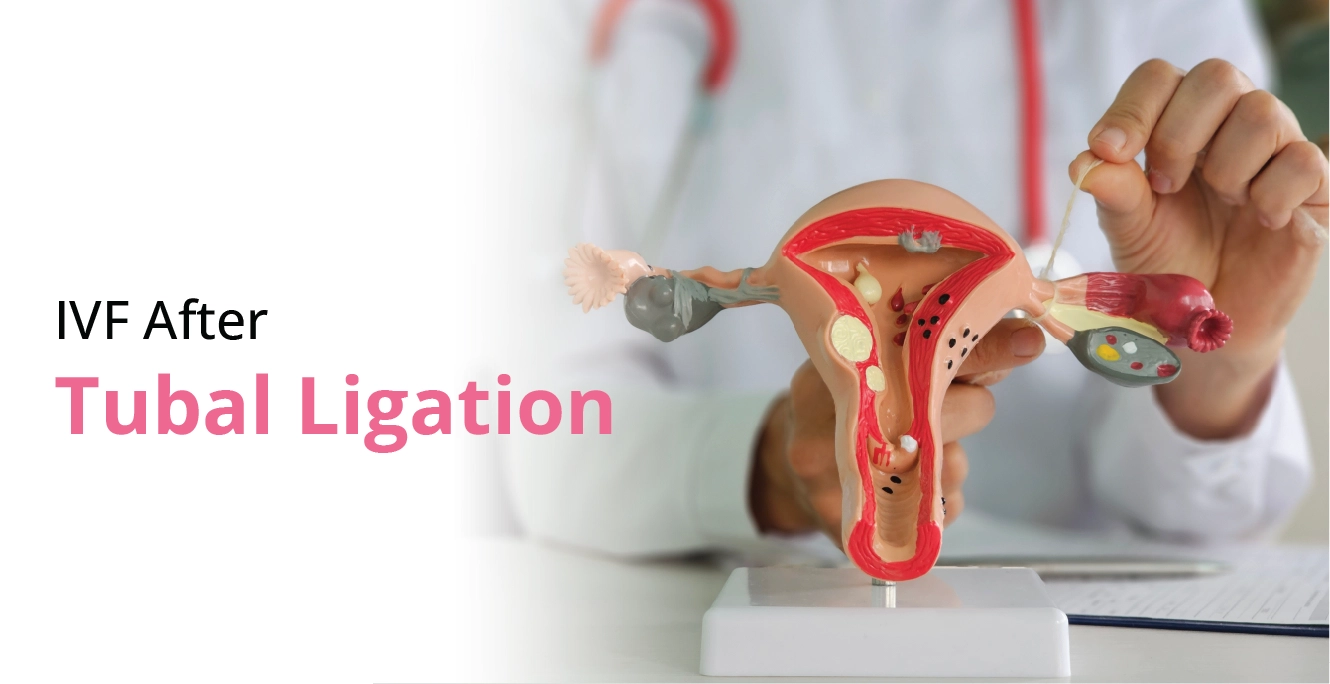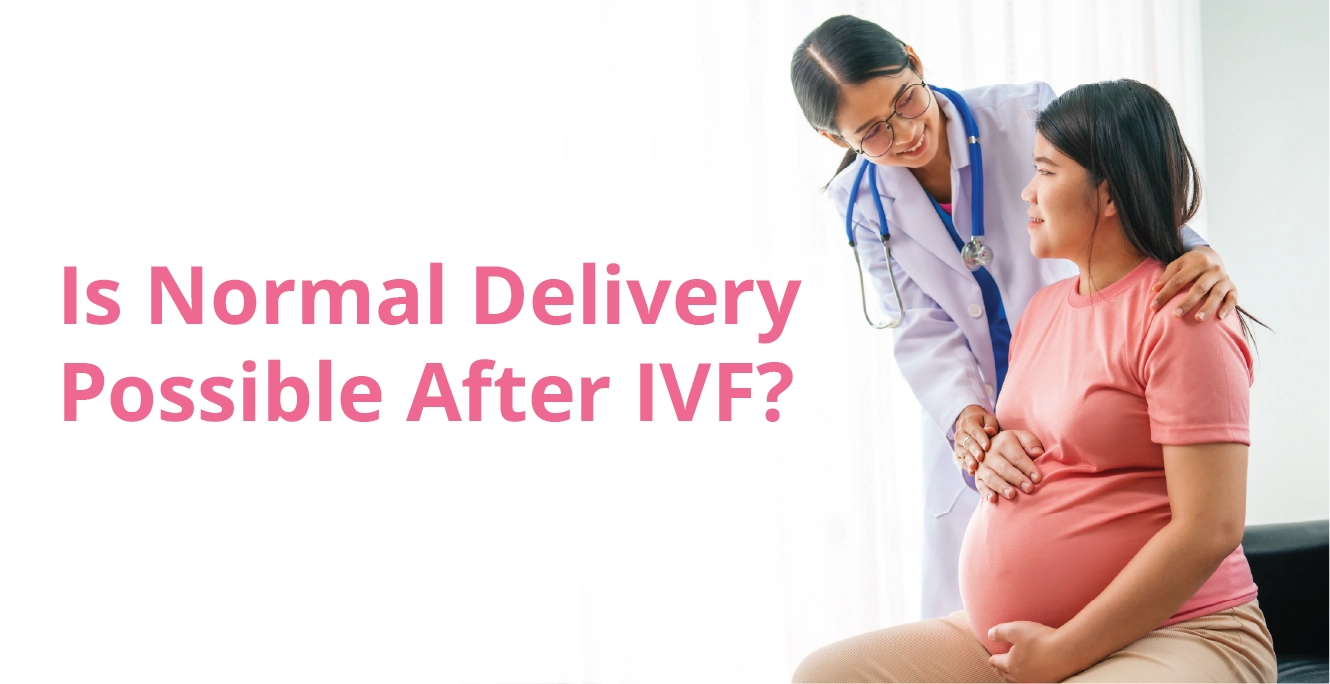Table of Contents
Becoming parents is one of life’s most cherished dreams, but for many couples, the path to parenthood doesn’t always unfold as expected. For many, natural conception is not possible because of various reasons. However, today, with modern assisted reproductive treatments like IUI (Intrauterine Insemination) and IVF (In Vitro Fertilisation), starting a family is within reach. Both these treatments are designed to support couples in overcoming fertility challenges, yet they differ in process, intensity, cost, and more.
Choosing IUI vs. IVF can turn out to be a difficult situation. Not just because of the medical details but also due to the emotions tied to every decision. There are many questions that might hound you, like “What is the difference between IUI and IVF?” or “Which will work better in our case?” We understand the curiosity, and that there’s no one-size-fits-all answer to every question or query. This blog will guide you in understanding what IUI and IVF are. This way, you can be confident about the right step for your parenthood journey.
What is IVF?
IVF, also called in-vitro fertilisation, is a type of assisted reproductive technology (ART). In this process, the egg and sperm are fertilised outside of the human body. The process entails taking eggs out of the ovaries and manually fertilising them in a lab by combining them with sperm. A few days following fertilisation, the fertilised egg—called an embryo—is implanted into the uterus. The embryo implants itself in the uterine walls, and that’s when pregnancy is confirmed.
What are the benefits of IVF?
While the doctor carefully examines the causes for infertility and a couple’s past medical history before recommending IVF treatment, many still proceed with this option because of the wide range of benefits. Here are some of the key benefits:
- Helps overcome a wide range of fertility issues – Whether it is blocked fallopian tubes, low sperm count, endometriosis, or any other unexplained infertility issues, IVF can overcome several challenges that otherwise prevent natural conception.
- Options to use donor eggs, sperm, or embryos – IVF offers flexibility for couples who might need donor support. This helps ensure that the dream of parenthood still remains possible under any condition.
- Higher success rates – IVF provides one of the highest success rates among all fertility treatments. It is especially the best choice of treatment for couples who have not been able to conceive through methods like IUI or medication.
- Embryo screening – IVF offers advanced genetic testing during the procedure. If you are confused about what it does, then let us tell you. Genetic testing can screen embryos for chromosomal abnormalities. These help reduce the risk of miscarriage and improve the chances of a healthy pregnancy. It is especially beneficial for couples who have a history of genetic conditions in their family, like Down syndrome.
- Control over timing – IVF allows for planning pregnancies around life circumstances. Couples have the option to freeze embryos that can be used in the future.
- Multiple attempts – Frozen embryos give couples additional chances at pregnancy without repeating the entire stimulation process.
What is IUI?
IUI, also known as intrauterine insemination treatment, is a less invasive treatment than IVF while still giving sperm a “head-start” advantage that, in some cases, is all a person needs. Medication is given for ovarian stimulation in order to increase the production of viable eggs. Later, a specialist injects the selected sperm into the uterus to boost fertilisation. If you are using donor sperm or paying out of pocket, opting for IUI could also be a more affordable option than IVF.
What are the Benefits of IUI?
Some key benefits of IUI include:
- Less invasive process – Unlike IVF, IUI does not involve egg retrieval or anaesthesia. The process is generally quick and gentle. Hence, a lot of couples feel IUI is more natural compared to IVF.
- Affordable – IUI is significantly less expensive, making it a good first step for couples exploring assistive reproductive treatment options.
- Shorter treatment time – Each cycle is relatively quick, and the procedure takes literally 5-10 minutes. This overall reduces emotional and physical stress.
- Best option for mild infertility cases – IUI works well in certain cases of infertility, like low sperm count, less motility, and cervical issues. It can also work for unexplained infertility cases.
- More like natural conception – Since fertilisation still happens inside the body, many couples find IUI to be a more natural-feeling path to parenthood.
In Which Conditions are IUI and IVF Recommended?
Refer to the table below to know the various factors in which IUI and IVF are advised to couples in order to provide effective treatment for assisted conception.
| Treatment | Condition |
| IUI |
|
| IVF |
|
Who is IVF Meant For?
Deciding to move forward with IVF is often a deeply personal and emotional step. IVF is recommended for couples or individuals who face challenges in conceiving naturally, including:
- Blocked or damaged fallopian tubes – It is a situation in which one or both tubes are blocked. This restricts the egg and sperm from meeting naturally. IVF bypasses this step by fertilising the egg with the sperm in the lab itself.
- Male infertility factors – There are many male infertility factors, like low sperm count or poor motility, that affect the process of natural conception. IVF is often combined with ICSI, which increases the chances of fertilisation.
- Endometriosis – This condition can affect the ovaries and fallopian tubes, reducing fertility. IVF offers an alternative path to conception.
- Age-related fertility decline – The egg quality generally reduces for women over 35. With the help of embryo freezing or donor eggs, IVF helps overcome this challenge.
- Recurrent miscarriages – Couples facing multiple miscarriages or who have genetic concerns are also recommended for IVF. Embryo screening (PGT) lowers the risks of conditions like Down syndrome and supports a healthy pregnancy.
Who is IUI Meant For?
IUI can be recommended to couples in the following situations:
- Mild male infertility – In cases where the male infertility is the issue, IUI is the best course of action. It can be low sperm count, motility, or shape issues. IUI helps place the healthy sperm directly into the uterus, which can fast-forward the fertilisation process.
- Cervical factor infertility – Sometimes the cervix may block or slow down sperm. IUI bypasses this barrier, improving chances of conception.
- Ovulation problems – We have seen many cases in which women don’t ovulate regularly. This type of condition can be overcome with IUI combined with fertility medication. IUI helps increase the likelihood of egg release and fertilisation.
- Unexplained infertility – When the reason for infertility is not found, IUI is often suggested as a simpler, first-line treatment.
What is the Success Rate of IUI & IVF?
When it comes to the IVF and IUI difference, the success rate also plays a major role. Though understanding it can give clarity that can bring comfort.
- IUI has an average success rate of 10–20% per cycle, which can rise to 40–50% as the number of cycles increases when paired with fertility drugs. IUI is more likely to be successful for young women and those with mild infertility issues than for those with severe infertility concerns.
- IVF generally delivers a higher success rate when compared to IUI, which goes up to 40% to 50% for women under 35. This can decrease with age; however, the right medication and the expertise of specialists always help. As the most significant indicator of a successful outcome, Birla Fertility & IVF stresses the significance of accurately evaluating success, especially differentiating between clinical pregnancy and live birth rate. We also emphasise the importance of individual parameters, including age, egg quality, and clinic skill.
Which is Right For You: IUI vs IVF?
There are many factors that need to be evaluated when it comes to choosing between IUI & IVF. Understanding the IVF and IUI differences also helps a lot since both offer unique paths to parenthood. The key factors it depends on are the medical history of the couple, age, fertility challenges, emotional readiness, and even financial crunch.
We understand that the journey can feel overwhelming, but with us, you won’t have to walk it alone. Our expert guidance and empathetic approach towards care best align with every couple’s needs and dreams. Every journey is different, but every step brings you closer to holding your baby in your arms. Get in touch with your fertility specialists and make an appointment today!
Our Fertility Specialists
Related Blogs
To know more
Birla Fertility & IVF aims at transforming the future of fertility globally, through outstanding clinical outcomes, research, innovation and compassionate care.
Had an IVF Failure?
Talk to our fertility experts

 Our Centers
Our Centers

















